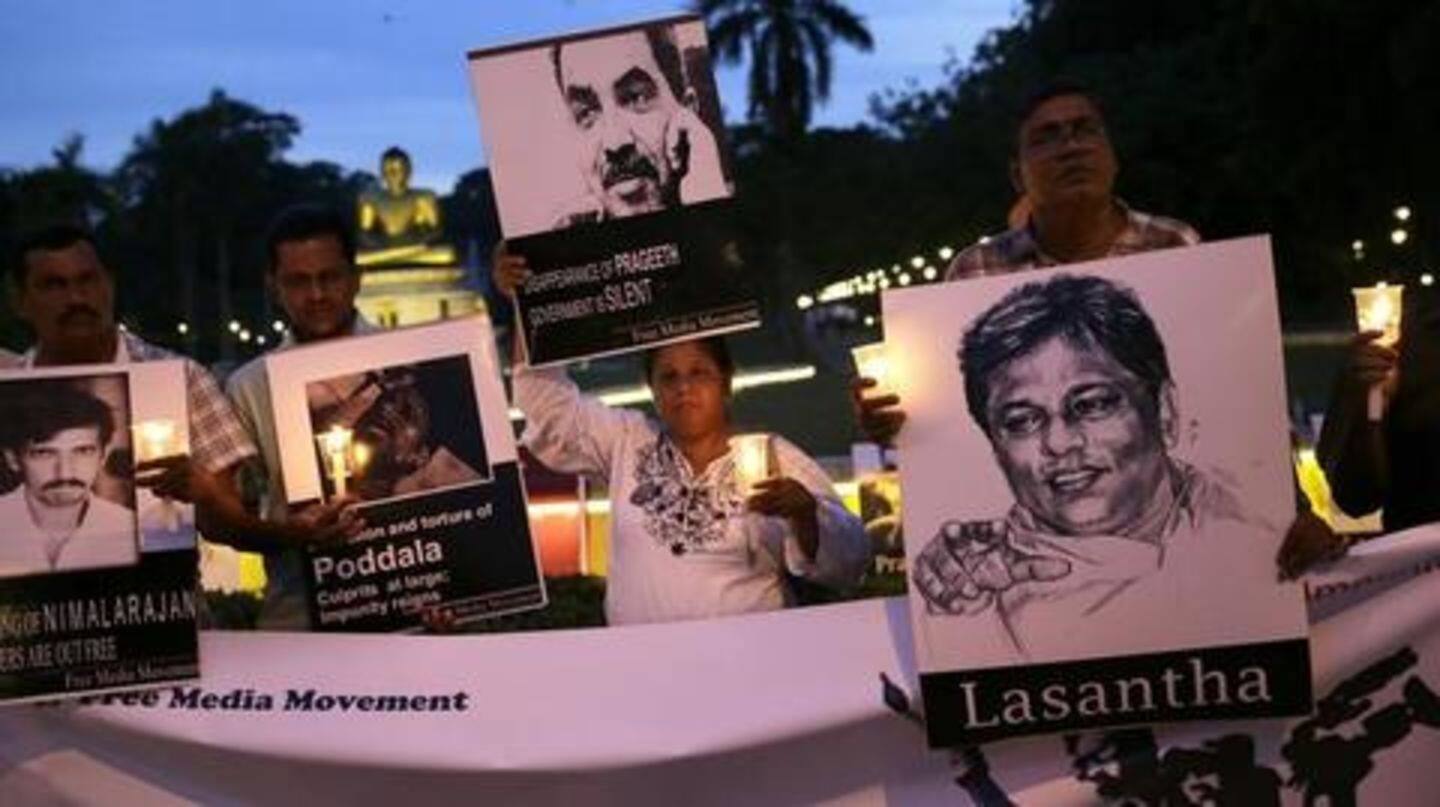
Lanka media rights activists call new anti-terror law 'draconian laws'
What's the story
Media rights activists yesterday urged the Sri Lankan government to withdraw proposed anti-terror legislation, calling it is a set of draconian laws aimed at suppressing media freedom and democratic rights.
The new Counter-Terrorism bill approved by the cabinet of ministers is now before the Parliament.
Activists said act could be used to arrest and detain journalist for "distributing any information to the public."
Reason
Proposed act could be used to arrest, detain journalists: Dodawatta
C Dodawatta, the convener of the Free Media Movement, a local media rights group, said the act could be used to arrest and detain journalist for "distributing or making available any information to the public."
He said the new government came into power in 2015 promising to repeal the existing anti-terror law, the Prevention of Terrorism Act that has been criticized by rights groups
Statement
Government has failed to repel Prevention of Terrorism Act: Dodawatta
Rights groups say that the successive governments have used the existing anti-terror laws for arresting and detaining the journalists, media workers, artists, rights activists, ethnic minority Tamils, and opposition politicians, said Dodawatta.
"But so far the government has failed to repeal the Prevention of Terrorism Act (PTA) and instead now, they are bringing another legislation which seems worse than the PTA," he told reporters.
Comments
Legislation would pose great danger to media freedom: Lankapeli
Dharmasiri Lankapeli, another media rights activist, said the legislation may result in arresting journalists for non-revelation of sources and "this would pose a great danger to media freedom and send more journalists to prison."
Rights activist and lawyer Viranjana Herath said the minister in charge could prohibit a common place, ban entry, taking photographs, video recordings and making sketches and also, prohibit any organization.
Laws
Lanka doesn't need new laws to combat terrorism, said Herath
"This will affect the freedom of assembly and association and could pose a serious threat to the freedom of expression and media-freedom," said Herath.
He said Lanka doesn't need new laws to combat terrorism, saying there are more than 20 existing laws to deal with offenses on terrorism.
Bringing new laws could be described as an attempt to suppress voice of people, he said.
Promises
Sirisena's government came into power promising justice for slain journalists
There was no immediate comment from the government and the spokesmen for the government did not answer phone calls seeking comment.
President Maithripala Sirisena and the new government came into power in 2015 promising to end a culture of impunity and ensure justice to slain journalists.
Under Sirisena's predecessor, Mahinda Rajapaksa, dozens of journalists were killed, abducted and tortured.
Some even fled the country.
Deaths
44 journalists, media workers killed during Rajapaksa presidency
In some cases of attacks against journalists, military officers were arrested but were released on bail later.
44 journalists and media workers were killed between 2006 and 2015, during the Rajapaksa presidency.
According to the Committee to Protect Journalists, 11 journalists were killed in the same period, including five who were targeted for murder and whose cases still remain unsolved.
Civil War
Most of the killings, attacks took place during civil war
Most of the killings and attacks on journalists took place during Sri Lanka's civil war, which started in 1983 and ended in 2009, after the government troops defeated the Liberation Tigers of Tamil Eelam (LTTE) who fought for a separate state for the ethnic minority Tamils.
Both the government and the rebels were accused of killing and abducting critics during the civil war.